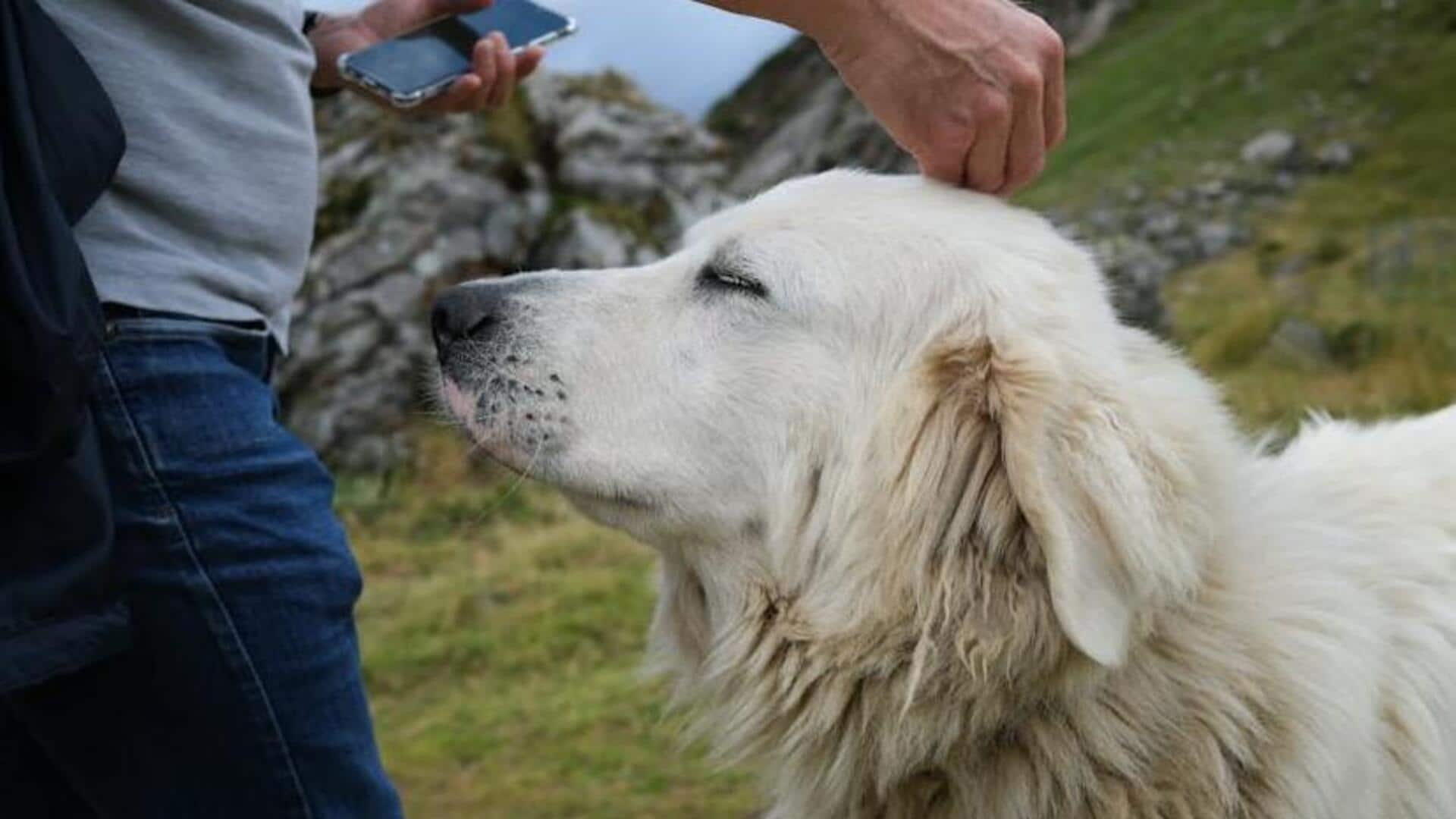
Great Pyrenees climate adaptation tips
What's the story
The Great Pyrenees is a breed of contradictions - they are big and imposing, but also some of the gentlest dogs around. However, they were bred to be in the cold mountains, and can struggle to adapt to different environments. This article gives you all the tips you need to keep your Great Pyrenees comfortable in any climate. It covers grooming, shelter, exercise, hydration, and health monitoring.
Grooming
Grooming for all seasons
The dense double coat of a Great Pyrenees requires routine grooming to maintain its insulating qualities without overheating the dog. During hotter months, brush more frequently (three times a week) to eliminate loose hair and prevent matting. This helps keep the dog cool and offers protection against sunburn and parasites. In contrast, during colder seasons, you should brush less often because a fuller coat helps keep the dog warm.
Shelter
Shelter adjustments
Providing proper shelter is essential for a Great Pyrenees's comfort and health year-round. In summer, they need access to shaded areas with good airflow or an air-conditioned space indoors. Winter accommodations should be warm and draft-free. If your dog spends time outside in cold weather, insulated dog houses designed to block wind chill and let moisture escape are ideal.
Exercise
Exercise adaptation strategies
Their exercise requirements change with the weather. In summer, restrict strenuous activity to early morning or late evening when it's cooler. Make sure to offer lots of water during play sessions to avoid dehydration. In winter, opt for shorter but more frequent walks to keep them active without risking too much exposure to the cold. Snow offers a fantastic playground, but check their paws for ice build-up.
Hydration
Hydration is key
Hydration is vital all year round, but it's especially important during the summer or after any exercise in any weather. Always provide clean, fresh water for your Great Pyrenees and bring additional water bottles for walks or outings outside the home. While your pet may drink less in the winter, maintaining access to fresh water promotes healthy drinking habits.
Health
Health monitoring essentials
Regular vet visits are crucial to ensure your Great Pyrenees is adjusting well to the changing weather, particularly if you reside in a region with extreme seasonal variations. Be extra cautious of heatstroke symptoms in the summer (excessive panting, lethargy) and hypothermia signs in winter (shivering, weakness). Diet modifications may be needed as activity levels change with the weather.